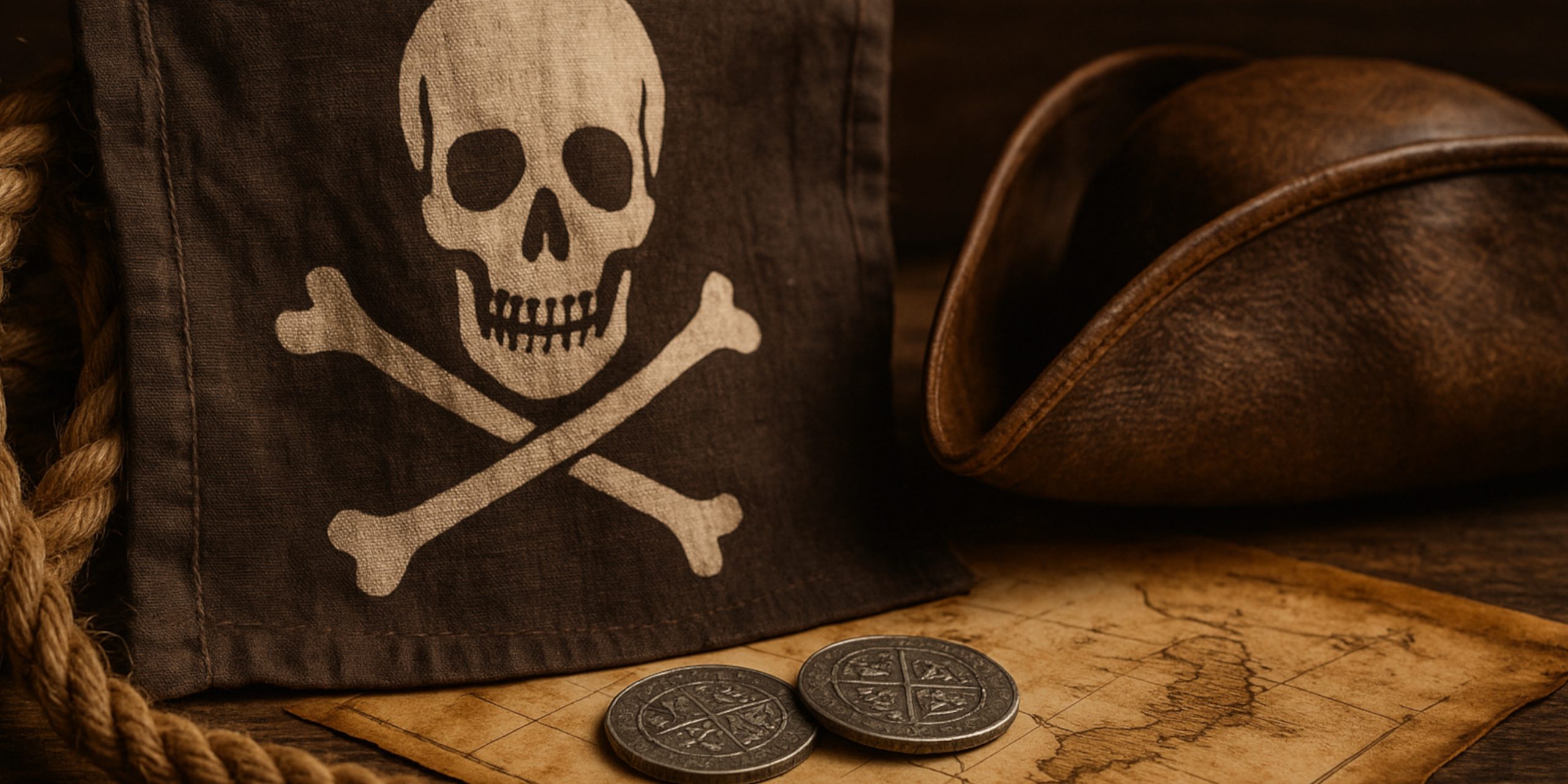
Pirates left more than just tales of buried treasure and shipwrecks behind. Many of the words and expressions associated with their world of sailing, smuggling, and seafaring have drifted into everyday language. Some of these terms have lost their swashbuckling origins, while others still conjure images of the high seas.
Below is a look at pirate-era slang and expressions that continue to be used or recognised today, often without people realising their nautical or piratical roots.
Common Pirate Slang Still in Use
1. “Ahoy”
Originally a nautical greeting used to hail ships or crew. While it has a comical or theatrical feel now, it’s still widely recognised and occasionally used, particularly in maritime contexts or to signal attention.
2. “Avast”
A command meaning “stop” or “hold fast.” Though not common in everyday speech, it remains familiar thanks to films, books, and themed events.
3. “Matey” / “Mate”
Short for shipmate. Still common in British and Australian English to refer to a friend or companion. Pirates used it to describe comrades aboard ship.
4. “Landlubber”
A derogatory term for someone unfamiliar with the sea. It’s occasionally used today to jokingly refer to people who aren’t comfortable around boats or water.
5. “Scallywag”
Once an insult for a dishonourable or rebellious person, this term has softened into an affectionate way to describe mischievous behaviour, especially in children.
6. “Jolly Roger”
The name for the skull-and-crossbones pirate flag. It still appears in popular culture and is often used symbolically for rebellion or mischief.
7. “Shiver me timbers”
An exclamation of surprise or shock. Though more theatrical than practical, it’s still recognised and occasionally used humorously.
8. “Blimey”
A British exclamation of surprise or disbelief, believed to have originated as a softened oath (from “God blind me”). Used by sailors and later adopted more broadly.
9. “Yo-ho-ho”
An expression popularised in pirate songs and stories, often associated with merriment or drinking. Still widely referenced, especially in parody.
10. “Pieces of eight”
A Spanish silver coin, widely used during the golden age of piracy. The phrase survives in historical references and pop culture, often used to represent treasure.
Nautical Phrases with Pirate Links
“Three sheets to the wind”
Meaning extremely drunk. The “sheets” here refer to ropes that control sails. If all three are loose, the ship lurches unpredictably, just like a drunkard.
“Show your true colours”
Originally a reference to naval deception, where a ship might fly false flags. Today, it means to reveal your real intentions or personality.
“Learning the ropes”
Based on the literal task of sailors learning how to handle rigging. It’s now used more broadly to describe getting the hang of a new job or task.
“By and large”
A sailing term describing a ship’s ability to sail both with the wind and somewhat against it. Now, it simply means “on the whole.”
Phrases Kept Alive by Pop Culture
Many pirate expressions persist not because they’re in regular use, but because they remain part of a widely recognised pirate ‘lexicon’, largely through literature, film, and themed media. Examples include:
- “Dead men tell no tales”
- “Walk the plank”
- “Davy Jones’ locker”
- “Weigh anchor”
- “Plunder and pillage”
These remain vivid, even if they’re rarely said in conversation.
Legacy of Pirate Language
The reach of pirate slang owes much to 18th and 19th-century literature, naval traditions, and Hollywood. What began as maritime jargon was often exaggerated, stylised, and repeated until it became folklore. British sailors, privateers, and pirates used a shared vocabulary that blended naval discipline with criminal life, and echoes of it still ring out in the language we use today.
While few genuinely speak in “pirate talk,” many of these expressions have slipped anchor from their origins and now float in modern speech. Some remain active, others linger as nostalgic or theatrical echoes, but they all help keep the spirit of the sea alive in language.










